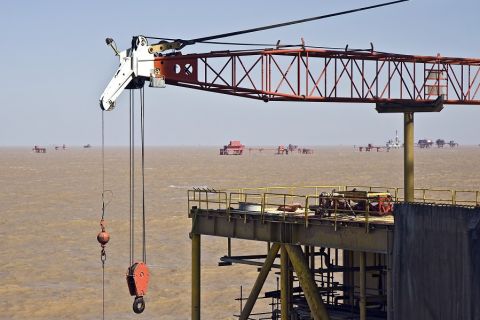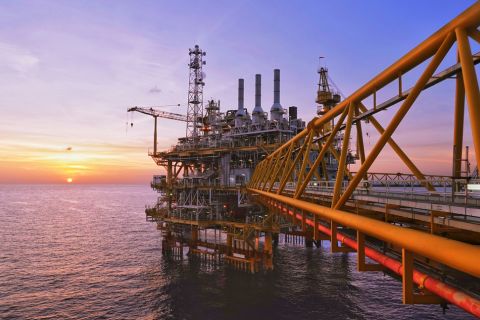Learn more about Hart Energy Conferences
Get our latest conference schedules, updates and insights straight to your inbox.
Washington and Brazil have discussed the South American nation’s role in keeping a lid on global crude prices since Russia’s invasion of Ukraine, Brazilian Energy Minister Bento Albuquerque told Reuters in an interview on April 20.
Brazil, with a current output of around 3 million bbl/d of oil, has been increasing production for years and is aiming for a 10% increase to 3.3 million bbl/d in 2022.
Asked if the U.S. had reached out to talk about potential production increases, Albuquerque said the two countries were cooperating.
“I already had two meetings with energy secretary [Jennifer] Granholm, and we have been talking about this, the importance to stabilize the offer and demand of oil and gas around the world,” he said.
Albuquerque’s comments underline the breadth of the Biden administration's diplomatic campaign to find alternatives to Russian crude.
Albuquerque, however, said a dramatic short-term boost would be logistically difficult.
“To increase production is not like a switch you can turn. We have been investing a lot in our oil and gas sectors for the last three years, and this is the reason why Brazil is increasing its production and we continue to increase production for the next years.”
The U.S. Department of Energy did not immediately respond to a request for comment.
Albuquerque, who expects Brazil to export 1.1 million-1.2 million bbl/d this year, added that although high oil prices offered some benefits to the major producer and exporter, the current level was not economically healthy for any party.
Asked if he sees global oil prices remaining at about $100/bbl for the rest of this year, he said: “I hope not.”
“It’s good for Brazil as a producer and exporter of oil, but we have to stabilize the price, and more than $100 a barrel is too much for any country, for developing countries and for developed countries,” he said.
Albuquerque, who was speaking in New Delhi, said he would like to see more Indian investment in Brazil's oil and gas sector.
He added that the South American nation is willing to meet India's oil demand, although oil deals are commercial contracts between companies.
India gets only a fraction of its oil imports from Brazil.
Recommended Reading
TotalEnergies Starts Production at Akpo West Offshore Nigeria
2024-02-07 - Subsea tieback expected to add 14,000 bbl/d of condensate by mid-year, and up to 4 MMcm/d of gas by 2028.
E&P Highlights: Feb. 5, 2024
2024-02-05 - Here’s a roundup of the latest E&P headlines, including an update on Enauta’s Atlanta Phase 1 project.
CNOOC’s Suizhong 36-1/Luda 5-2 Starts Production Offshore China
2024-02-05 - CNOOC plans 118 development wells in the shallow water project in the Bohai Sea — the largest secondary development and adjustment project offshore China.
US Drillers Cut Oil, Gas Rigs for First Time in Three Weeks
2024-02-02 - Baker Hughes said U.S. oil rigs held steady at 499 this week, while gas rigs fell by two to 117.
Equinor Receives Significant Discovery License from C-NLOPB
2024-02-02 - C-NLOPB estimates recoverable reserves from Equinor’s Cambriol discovery at 340 MMbbl.




